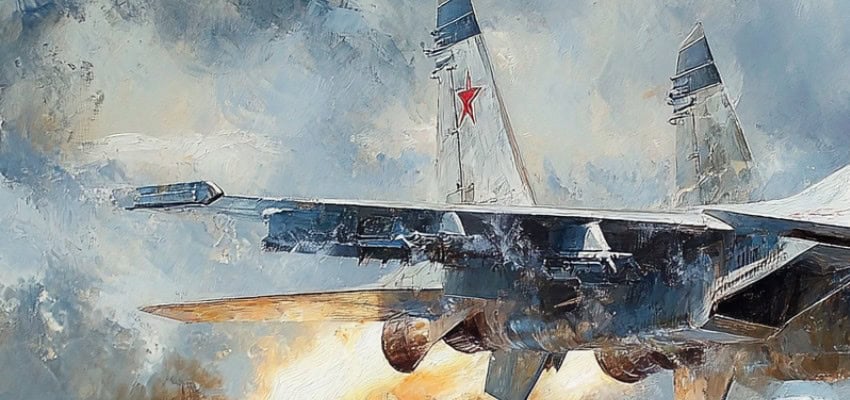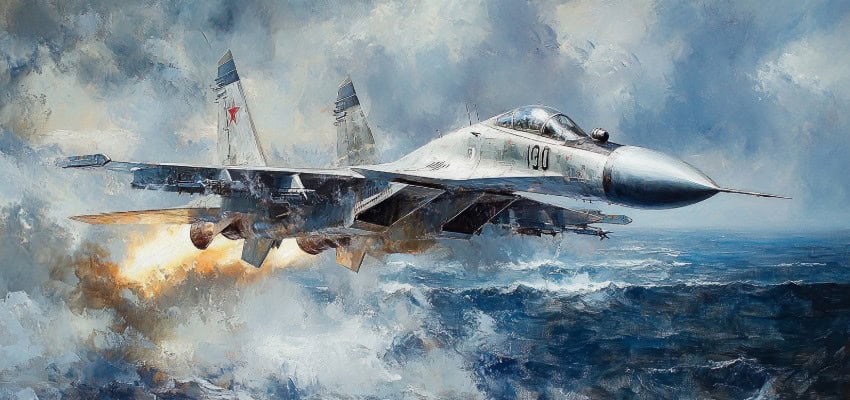Editor’s Note: This report presents a comprehensive summary and contextual analysis of the May 3, 2025, Russian Offensive Campaign Assessment published by the Institute for the Study of War (ISW). Focused on the evolving operational landscape of the Russo-Ukrainian War, it examines key military developments, technological advancements, and the strategic use of historical narratives by the Russian state. Of particular note are Ukraine’s recent drone warfare innovation and Russia’s intensifying disinformation campaigns aimed at the Baltic States. By integrating battlefield updates with geopolitical implications, this summary seeks to inform readers of the broader dimensions shaping security in Eastern Europe and the enduring significance of contested histories in modern warfare.
For those seeking to grasp the full scope of this evolving landscape, the complete updates from the Institute for the Study of War serve as an invaluable resource.
Content Assessment: Ukraine Innovates as Russia Escalates: From Drone Strikes to Baltic Disinformation
Information - 94%
Insight - 93%
Relevance - 92%
Objectivity - 94%
Authority - 95%
94%
Excellent
A short percentage-based assessment of the qualitative benefit expressed as a percentage of positive reception of the recent article from ComplexDiscovery OÜ titled, "Ukraine Innovates as Russia Escalates: From Drone Strikes to Baltic Disinformation."
Background Note: ComplexDiscovery’s staff offers distinctive perspectives on the Russo-Ukrainian war and Middle Eastern conflicts, informed by military experience on the West German, East German, and Czechoslovakian border during the Cold War and in Sinai as part of Camp David Accord compliance activities. This firsthand regional knowledge has been further enhanced by recent staff travels to Eastern European countries, including Estonia, Finland, Latvia, Lithuania, and Poland. These visits have provided up-to-date, on-the-ground insights into the current geopolitical climate in regions directly impacted by the ongoing conflict.
Combined with cybersecurity, information governance, and eDiscovery proficiency, this multifaceted experience enables comprehensive analysis of these conflicts, including the critical impact of cyber warfare, disinformation, and digital forensics on modern military engagements. This unique background positions ComplexDiscovery to provide valuable insights for conflict-related investigations and litigation, where understanding the interplay of technology, data, and geopolitical factors is crucial.
Russo-Ukrainian Conflict Update*
Ukraine Innovates as Russia Escalates: From Drone Strikes to Baltic Disinformation
ComplexDiscovery Staff
As Russian forces press their offensive across eastern Ukraine, a quieter but no less potent battle unfolds across Europe’s northeastern flank. The Kremlin has intensified its ideological offensive against the Baltic States, using historical revisionism as a tool to challenge NATO’s cohesion and signal irredentist intent. This renewed emphasis on denying the sovereignty of former Soviet republics—epitomized by the publication of a propagandistic History of Lithuania—has become a central feature of Moscow’s long-term strategy, aimed not only at justifying past expansion but preconditioning the international space for future aggression.
Concurrently, the military front remains highly fluid. Russia has proposed a unilateral Victory Day ceasefire from May 8–11, which Ukrainian President Volodymyr Zelensky has flatly rejected as a “theatrical production.” Ukraine continues to advocate for a substantive 30-day ceasefire with proper monitoring mechanisms, rejecting what it sees as a cynical maneuver by Moscow to secure operational pauses without genuine steps toward peace. Russian dismissals of both Ukrainian and U.S.-backed proposals for extended ceasefires underscore the Kremlin’s prioritization of tactical advantages over diplomatic resolution.
On May 3, Ukrainian forces demonstrated a remarkable technological advance by downing a Russian Su-30 fighter jet using a surface-to-air missile deployed from a Magura naval drone in the Black Sea near Novorossiysk. This represents the first recorded instance of a fixed-wing aircraft being destroyed by a naval drone, reflecting Ukraine’s accelerating innovation in unmanned systems. The achievement sent shockwaves through Russian milblogger communities, many of whom criticized the Kremlin for falling behind in drone warfare and called for urgent doctrinal and technological reform.
This drone success follows earlier Ukrainian attacks using similar systems and comes amid a broader pattern of aerial confrontation. Russian forces launched a significant missile and drone barrage overnight on May 2–3, deploying 183 drones and multiple Iskander-M missiles. Ukrainian defenses intercepted most, but several projectiles damaged infrastructure in Kharkiv, Sumy, Donetsk, and Mykolaiv oblasts, reinforcing the continued threat to both military and civilian targets.
On the ground, Russia continues to probe and push across multiple fronts. Confirmed advances were made in sectors such as Borova, Lyman, Siversk, and the Novopavlivka and Kurakhove directions. In the Pokrovsk axis, Ukrainian sources report Russian casualty rates averaging 150 per day amid intense engagements aimed at breaching into Dnipropetrovsk Oblast. Elsewhere, contested terrain remains fiercely defended, with Russian forces making unverified but aggressive pushes near Toretsk and Velyka Novosilka.
Meanwhile, U.S.-Ukrainian defense cooperation deepens. The Trump administration has finalized a $310.5 million military support package for Ukraine, focused on sustaining and upgrading F-16 fighter capabilities. This package includes aircraft modifications, personnel training, and software systems—components vital for maintaining Ukraine’s qualitative edge amid an increasingly attritional battlefield environment.
Yet while these tactical and logistical updates dominate headlines, the more insidious threat may lie in Russia’s strategic messaging. The Moscow State Institute of International Relations- published History of Lithuania, prefaced by Russian Foreign Minister Sergei Lavrov, aims to reframe the Baltic’s historical narratives as extensions of Russia’s past, undermining the legitimacy of their modern statehoods. This cultural offensive is neither subtle nor new, but its timing, framed against the backdrop of active war and Western strategic fatigue, is particularly calculated.
Russia’s use of historical narratives as a tool of strategic influence, especially against the Baltic States, signals that its objectives in the current war extend beyond territorial conquest. As Ukraine adapts on the battlefield through technological innovation and international support, Russia is simultaneously expanding its ideological and geopolitical campaigns. These parallel offensives reflect a multifaceted strategy that continues to challenge European security and test the resolve of NATO and its allies.
As a leading source for cybersecurity, information governance, and legal discovery insights, including international investigations and litigation, ComplexDiscovery OÜ recognizes the importance of awareness regarding alleged and documented criminal acts, particularly in the context of the Russia-Ukraine conflict. While we, following the lead of the Institute for the Study of War (ISW), do not provide detailed coverage of war crimes in our primary reports, we encourage professionals within the eDiscovery ecosystem to stay informed about these activities. This awareness is crucial for understanding potential future legal actions and responsibilities.
Detailed Reporting with Maps for May 3, 2025, from the ISW – Mouseover to Scroll
Russo-Ukrainian War May 03 2025 - ISWReview the Detailed Reporting and Maps PDF
About the Institute for the Study of War Research Methodology
ISW’s research methodology relies on both primary and secondary sources, enabling researchers to develop a comprehensive understanding of the situation on the ground. In order to analyze military and political developments in any given area, ISW’s research analysts must wholly understand the systems of enemy and friendly forces. They must also understand the population demographics, physical terrain, politics, and history of that area. This lays the analytical foundation for understanding the reasons for particular developments and fulfilling their assigned research objectives. ISW analysts also spend time in places like Iraq, Afghanistan, and elsewhere in order to gain a better understanding of the security and political situation and to evaluate the implementation of current strategies and policies. Their researchers compile data and analyze trends, producing a granular analysis of developments in areas of research, producing an accurate, high-resolution, timely, and thorough picture of the situation. ISW’s research methodology guarantees its success and commitment to improving the nation’s ability to execute military operations, achieve strategic objectives, and respond to emerging problems that may require the use of American military power.
About the Institute for the Study of War
The Institute for the Study of War advances an informed understanding of military affairs through reliable research, trusted analysis, and innovative education. They are committed to improving the nation’s ability to execute military operations and respond to emerging threats in order to achieve U.S. strategic objectives. ISW is a non-partisan, non-profit, public policy research organization.
Learn more, get involved, and contribute today.
Additional Reading
- From Dissent to OSINT? Understanding, Influencing, and Protecting Roles, Reputation, and Revenue
- Data Embassies: Sovereignty, Security, and Continuity for Nation-States
Assisted by GAI and LLM Technologies
* Sourced and shared with direct expressed permission from the Institute for the Study of War (ISW).
Source: ComplexDiscovery OÜ


























